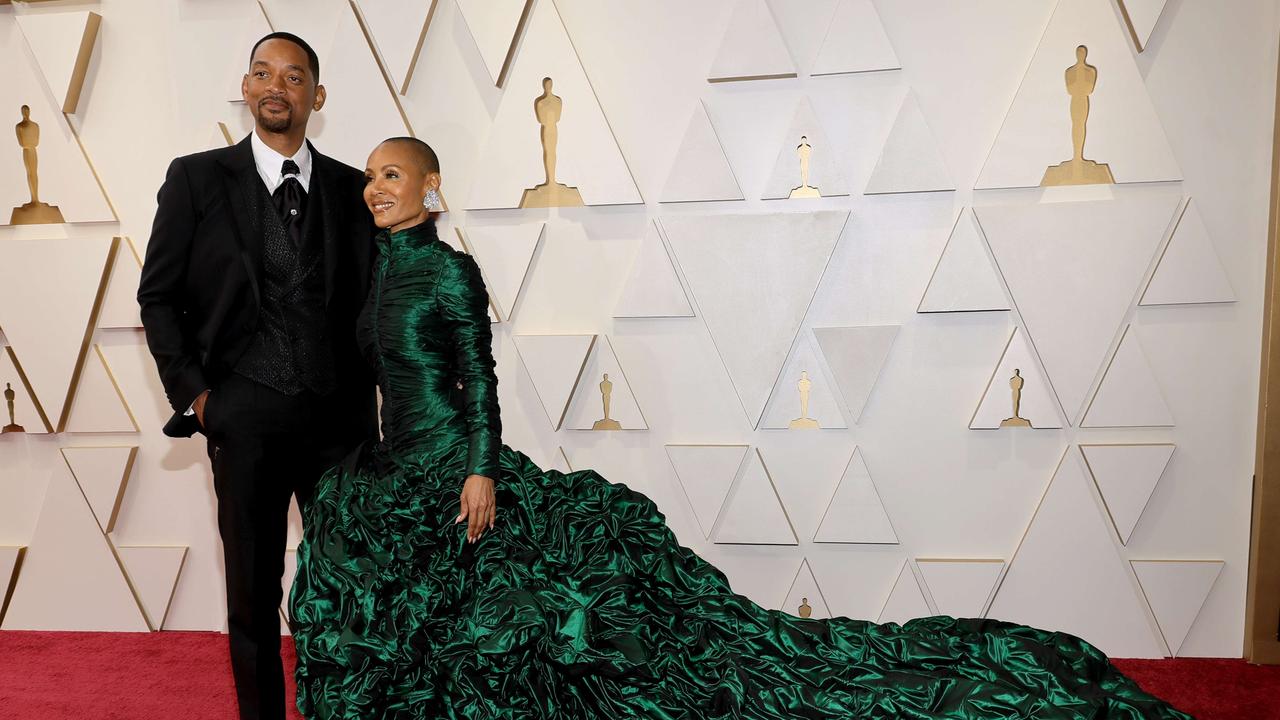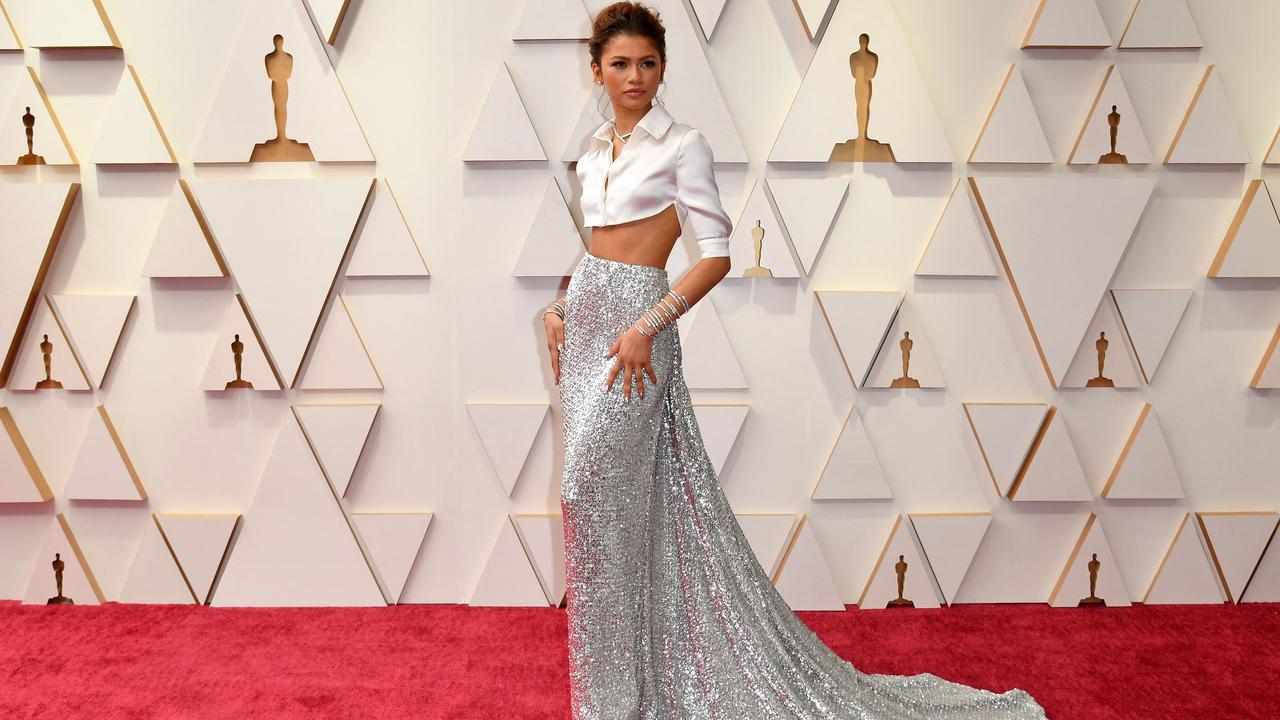All the Oscars drama
Emotions ran high at the 94th Oscars, from Will Smith’s anger and tears to the genuinely moving message of the wildly popular best picture winner.

Will Packer, the producer of the 94th Academy Awards, wanted this to be a heartfelt, passionate Oscars. “They care about your story; they care about your passion,” he advised nominees at the annual pre-Oscars luncheon. “Lean into that.”
But even he could never have predicted just how, well, emotional this year’s Oscars would be. The night’s biggest prize was awarded to CODA: a small independent film about a deaf family’s love for one another conquering all, which premiered at last year’s Sundance Film Festival before being bought by AppleTV+ for a record-breaking $US25m ($33m). The movie broke more records at the Oscars: the first time a movie without nominations in directing or editing has taken the top prize, the first time movies directed by women have won back-to-back best picture awards; and, in a nod to the state of the entertainment industry, the first time a streaming film has won Hollywood’s most prestigious award.
It was no doubt an emotional return to the Dolby Theatre, the Los Angeles home of the Oscars, where the awards were held for the first time since the pandemic, complete with a full-scale red carpet dominated by old Hollywood glamour – with the occasional modern twist.
Emotions ran high throughout the awards. The night began with a tear-stained speech from Ariana DeBose, recognised for her dazzling performance as Anita in Steven Spielberg’s under-appreciated West Side Story remake.
“You see an openly queer woman of colour,” DeBose shared in her speech, “who found her strength and life through art. And that is, I think, what we’re here to celebrate. So if anyone has ever questioned your identity, I promise you – think ‘There is indeed a place for us’.”
Rita Moreno may have understood how DeBose was feeling. Moreno, who won best supporting actress in 1961 for playing Anita in the original West Side Story, watched DeBose’s speech from her seat in awe.
The moving start was preceded by a powerful opening number: Beyonce in Dunlop green, singing her original song from King Richard on a tennis court in Compton, where Venus and Serena Williams once trained as young girls. Cinematic and celebratory, it was the perfect opening number — although the telecast immediately segued awkwardly into the cacophonous boom of DJ Khaled, hyping up the hosting trio of Amy Schumer, Wanda Sykes and Regina Hall. (“Cheaper than hiring one man,” Schumer joked.)
More awards and more emotion when Troy Kotsur took home a richly deserved best supporting actor prize for his turn as a deaf father fighting to connect with his hearing daughter in CODA. His interpreter Justin, himself a “CODA” – which stands for child of deaf adults – fought back tears as he relayed Kotsur’s speech about his father, who gave him the gift of ASL (American Sign Language) before a car accident left him paralysed.
“I learned so much from you,” Kotsur said. “I’ll always love you.”
The first deaf man to win an acting Oscar, Kotsur’s record-breaking awards season run has charmed everyone. Last year’s winner, Youn-Yuh Jung, presenting the award, clutched her chest as she announced his name, signing love in ASL as Kotsur made history.
There were further tears later in the evening as Jessica Chastain accepted her best actress award for The Eyes of Tammy Faye, standing by marginalised queer communities just as Tammy Faye once did.
“You are unconditionally loved for the uniqueness that is you,” Chastain declared. to a crowd that included vanquished fellow nominee Nicole Kidman, who lost out for her portrayal of Lucille Ball in Meet the Ricardos.
Bill Murray presented a tribute to the late Ivan Reitman. “He made some movies, some really good movies,” went a gently understated Murray. “Ivan, I love your work”. Jamie Lee Curtis honoured Betty White, who was “not only a golden girl, but a legend … thank you for being a friend to us all”.
And then Will Smith was named best actor for King Richard (pictured inset), mere moments after he slapped Chris Rock during the telecast when the comedian made a joke about (Smith’s wife) Jada Pinkett Smith’s hair loss. “Richard Williams was a fierce defender of his family,” Smith began, soon succumbing to tears, at the start of a speech that was long and, at times, uncomfortable, but had everyone who was watching in the live audience – and on television around the world – riveted. “In this time in my life, I am overwhelmed by what God is calling on me to do and be in this world,” a tearful Smith said.
Because these were the emotional Oscars, it’s little surprise then that CODA won. For months, pundits had been predicting an Academy Awards sweep for Jane Campion’s The Power Of The Dog, an impeccably constructed intellectual drama from Netflix.
Instead, that film went home with just a single win from 12 nominations, for Campion in directing, (her second, setting a record for female directors) while CODA took home the night’s highest prize.
It was streamer vs streamer, Netflix vs Apple, and ultimately it was the little indie film that moved audiences earnestly, without artifice, that triumphed. After years of chasing Oscars glory, backing movies from some of the industry’s most prestigious filmmakers, Netflix still doesn’t have a best picture Oscar to its name.
Yet Apple, Hollywood’s youngest streaming studio, which only came into existence less than three years ago, has done what the giant Netflix could not.
CODA won all three of the awards it was nominated for. (Dune – with six, mostly technical, wins – was officially the most-decorated movie of the night.) The love for CODA, a film that tells a classic story in new, important and representative ways, is real.
You only had to watch Hollywood’s finest, from JK Simmons to Benedict Cumberbatch to Caitriona Balfe, standing to applaud in ASL – both hands shaking and raised at ear height – for CODA’s history-making cast and crew – to understand that. Sometimes the best movie of the year is the one with its heart proudly on its sleeve.





To join the conversation, please log in. Don't have an account? Register
Join the conversation, you are commenting as Logout